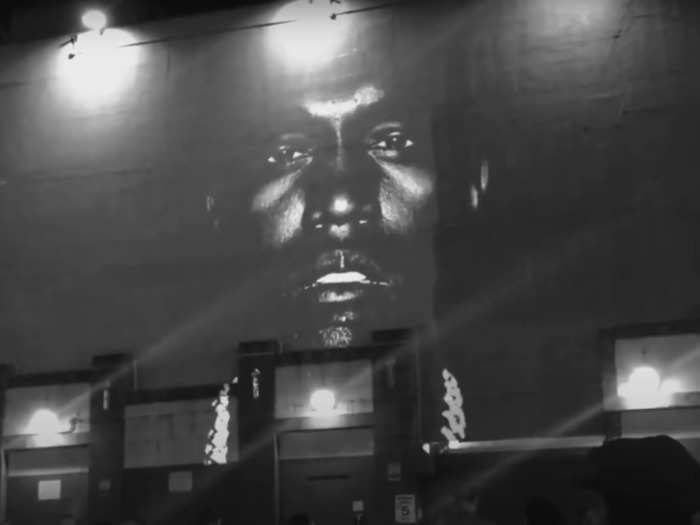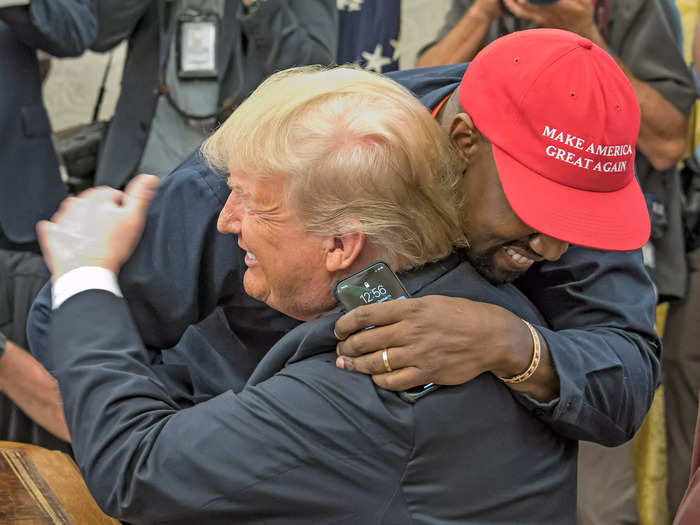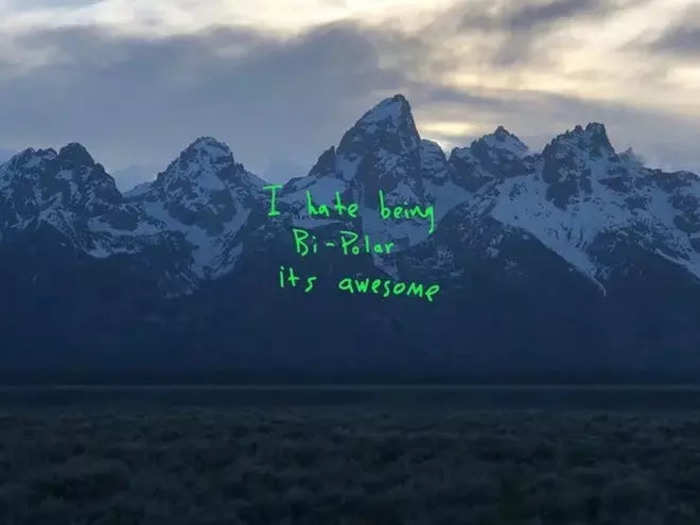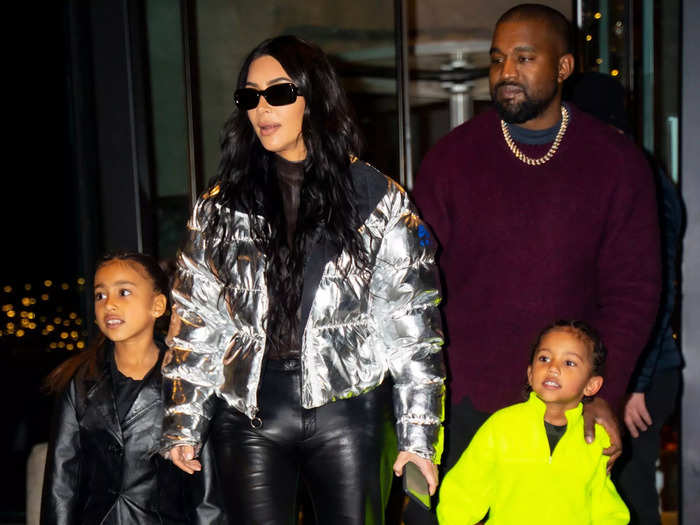- Home
- entertainment
- news
- A history of Kanye's lyrics and controversial statements about slavery, including calling it "a choice"
A history of Kanye's lyrics and controversial statements about slavery, including calling it "a choice"
Yoonji Han

- Kanye West provoked uproar when he wore a "White Lives Matter" shirt in October.
- The rapper has a history of making controversial statements and writing lyrics about slavery and race.
In 2013, West released "New Slaves": "They tryna lock n****s up / They tryna make new slaves"

"New Slaves," released as part of West's 2013 album "Yeezus," is one of the artist's "most explicit evaluations of slavery and its legacy" and how slavery has lived on, according to Shea Watts, a professor who studied theology and cultural criticism.
The song opens with a description of West's mother and the racism she experienced — "My mama was raised in the era when / Clean water was only served to the fairer skin" — and distinguishes between "broke" and "rich n**** racism."
"He suggests there are different layers of racism. I believe he's alluding to class and how that changes how racism is expressed and experienced," Watts told Insider. "Being a new slave is about being held captive to consumerism, even assimilation of class."
References to how the Drug Enforcement Administration (DEA) "teamed up" with the "Corrections Corporation of America" (CCA) to "make new slaves" convey West's criticism of the prison industrial complex, where Black prisoners still provide free labor for the benefit of the wealthy elite.
West rapped about debt and chains of slavery in his 2016 song Saint Pablo: "400 years later, we buyin' our own chains / The light is before us brothers, so the devil workin' hard"

In his 2016 song "Saint Pablo," West alludes to the Atlantic slave trade, which began in the 16th century. The song addresses West's $53 million of debt. By rapping about how people are "buyin' our own chains," he again brings up the idea of how buying into commercialism is another form of slavery, according to Watts.
Others have also interpreted the lyrics to suggest that West has turned an object that represented oppression and slavery into a symbol of empowerment.
West said that 400 years of slavery "sounds like a choice" in a May 2018 interview

During a May 2018 interview with TMZ, West made one of his most controversial statements about slavery.
"When you hear about slavery for 400 years," he said. "For 400 years? That sounds like a choice. You was there for 400 years and it's all of y'all. It's like we're mentally in prison. I like the word prison because slavery goes too direct to the idea of Blacks. Slavery is to Blacks as the Holocaust is to Jews. Prison is something that unites as one race, Blacks and whites, that we're the human race."
West made the remark after talking about his choice to wear a "Make America Great Again" cap, his love for then-president Donald Trump, and the need for free thought.
"I felt a freedom in doing something that everybody tells you not to do," he said about wearing the hat.
West later apologized for his statement about slavery being a choice.
In 2018, West retroactively added a line to his song "I Thought About Killing You": "Buckwheat ass n****, it's 'gon be otay / Sorry, but I chose not to be no slave"

In June 2018, less than a week after dropping his eighth album "ye," West added a new line to his opening track, "I Thought About Killing You."
The addition — about choosing not to be a slave — came a month after his explosive interview with TMZ.
In the song, West explores the theme of mental strength, alluding to his contemplations of suicide. In 2016, West was diagnosed with bipolar disorder, which he called his "superpower" in his song "Yikes."
West's lyrics capture him trying to overcome mental illness "through the power of positive thinking," according to Watts.
Similarly, "he may actually believe that thinking differently about slavery actually changes things like history. Thinking things into a different reality," Watts said.
In 2018, West said he would have "run, fought, or got killed" if he were a slave
During a visit to the Fader office in September 2018, West reportedly said he would have "run, fought, or got killed" if he were a slave.
He incorrectly stated that there were only 800 slaves in the 1800s (there were around 4 million in the US by the 1860s, statistics show). West also said there are 2 million slaves in the US now, referring to the number of people trapped in the private prison system — a message that echoes his lyrics from "New Slave."
West wore a Colin Kaepernick sweatshirt with a MAGA hat, which he said he "redesigned," according to The Fader.
"I changed the brim, I mean I changed the shape right here and I put positive energy into the hat," he said.
West denounced his last name in his leaked song "Last Name": "West stole West, simply got shame / Givin' up, I'm givin' up my slave name"

"Last Name" was originally teased on Instagram in 2018 during West's visit to Fader, and was fully leaked in October 2019. In the song, he attempts to diassociate himself from his "slave name," West, which he raps was likely given to his family's ancestors by slave owners.
In September 2018, he tweeted that he would go as "Ye," not "Kanye West."
West tweeted in 2020 that "the music industry and the NBA are modern day slave ships"
On September 14, 2020, West tweeted that the music industry and the NBA are "modern day slave ships."
"I'm not gonna watch my people be enslaved," he wrote. "I'm putting my life on the line for my people."
Two days later, he tweeted a video of himself urinating on a Grammy Award.
In 2019, West's record label sued him for alleged breach of contract after he claimed his deal was a form of "servitude."
In October 2022, West said he had a "gut instinct" to wear a "White Lives Matter" shirt
West sparked controversy and outrage in October 2022 when he wore a shirt with the words "White Lives Matter" on the front to his Yeezy fashion show.
In an interview with Tucker Carlson later that week, West said he thought the shirt was "funny," and that he had a "gut instinct" to wear it to his show.
"I do certain things from a feeling. I just channel the energy, it just feels right," he said. "It's using a gut instict, a connection with God, and just brilliance."
Prominent figures have publicly criticized West's sartorial choice. Vogue editor Gabriella Karefa-Johnson called his choices a "danger" because the message "justifies mass incarceration, murder en mass, indeed even the advent of slavery."
"More than his music, his fashion shows how much he wants to be an icon that really changes, confuses, and altogether rejects paradigms," Watts said. "But to deny this history of slavery seeks to erase generational trauma and the systemic ways slavery lives on through systemic racism."
Popular Right Now
Popular Keywords
Advertisement